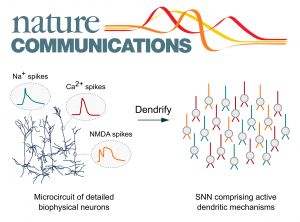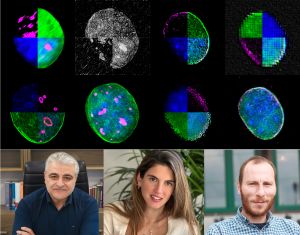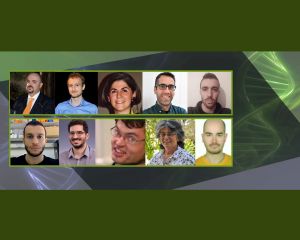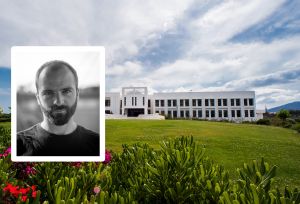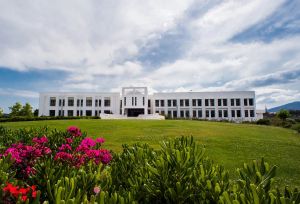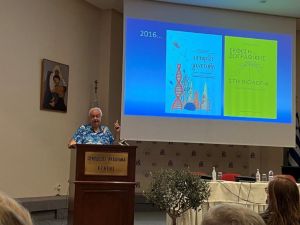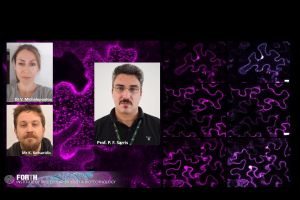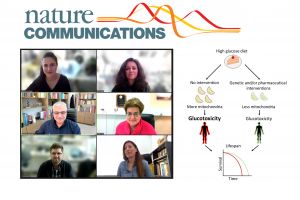Biosciences, Biotechnology
FORTH’s Researchers a step closer to unraveling the secrets of the brain function - Featured in Nature Communications Editors' Highlights
In a recent publication, featured in the prestigious scientific journal Nature Communications Editors' highlights, the team of Dr. Panayiota Poirazi, Research Director at ΙΜΒΒ, presents a new software framework that allows the incorporation of dendrites and their key mechanisms into large-scale neural network models.
IMBB scientists uncovered a novel cellular mechanism that regulates ageing and fertility
Research at the Institute of Molecular Biology and Biotechnology of FORTH published in the premier international scientific journal Nature Aging, reveals a fundamental quality control mechanism that operates in cells to safeguard the integrity and function of the nucleus. By maintaining nuclear homeostasis, this molecular mechanism contributes critically to promote longevity and fertility. IMBB researchers Dr. Margarita-Elena Papandreou and Dr. Georgios Konstantinidis, headed by Dr. Nektarios Tavernarakis (Professor at the Medical School, University of Crete, and Chairman of the Board at FORTH), discovered that recycling of nuclear and nucleolar components via autophagy delays ageing of somatic cells, and sustains the immortality of germ cells, which are required for reproduction.
Can the three-dimensional organization of the T cell genome regulate (auto)immunity?
The research team's next step, in the field of autoimmunity research, involves the design of highly specific small molecules to be tested for their ability to inhibit inflammation and autoimmunity, initially in a mouse model and later in humans.
Prestigious ERC Starting Grant awarded to FORTH Researcher Dr. Emmanouil Froudarakis
The ERC Starting Grants are awarded to talented early-career scientists, who have already produced excellent work and show potential to be research leaders, to launch their own projects.
FORTH establishes the “Greek Institute of Human Genomics”
The GIHG was created by the vision of internationally recognized researchers and it aspires to enrich the scientific environment of Greece and to become a world leader in research on genetic diversity and its connection with various monogenic and multifactorial diseases.
Professor Christos Louis honored for contributions to malaria mosquito biology
Professor Christos (Kitsos) Louis, IMBB researcher, was honored for his significant contributions to the understanding of the biology of the malaria mosquito on July 27 at the Mosquito Kolymbari Conference 2022, held at the Orthodox Academy of Crete.
Establishment of the Hellenic Network of Molecular Oncology, a Pan-Hellenic hub in the field of oncology
Pathogenic bacteria inhibit host cell secretion to manipulate host immunity
In nature, there is a constant evolutionary battle between microbes and their hosts, during which, many bacteria secrete specific proteins into the host’s cells, aiming to alter its physiology, while increasing pestiferous activity.
Clock gene mutation found to contribute to the development of autism
A team of scientists from the University of Minnesota Medical School, University of Texas Health San Antonio, and the Biomedical Research Institute of FORTH, found that the disruption of a circadian clock gene may be involved in the development of autism spectrum disorder.
FORTH researchers reveal how metabolic reprogramming in mitochondria promotes or undermines survival and longevity
The new findings of the study are published today in the premier international scientific journal Nature Communications.
Page:123 | < Prev Next >

